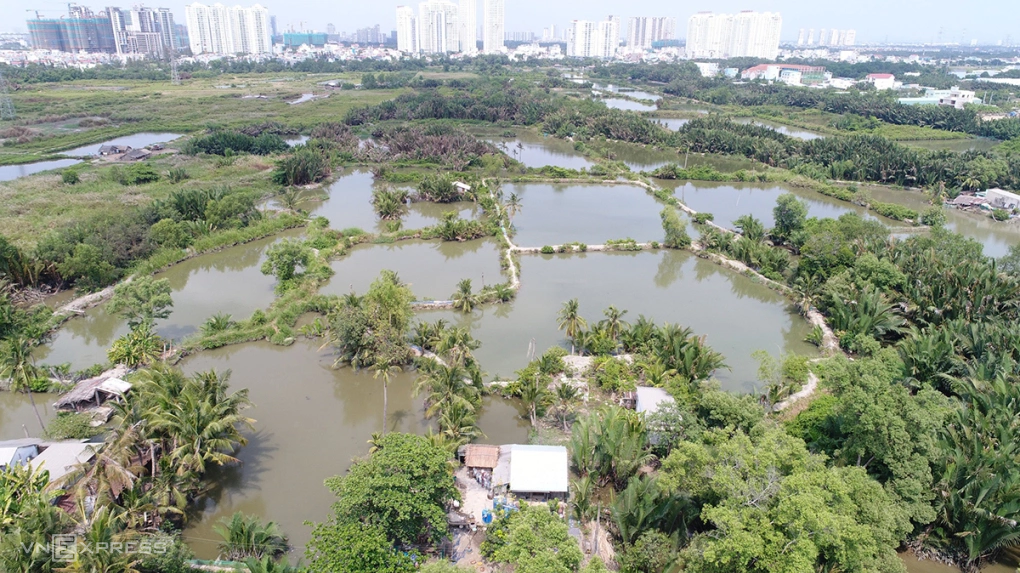Auditing firm UHY has expressed concerns about Quoc Cuong Gia Lai Joint Stock Company (QCG)'s ability to continue operating, according to their reviewed semi-annual financial report. This stems from the company's short-term liabilities exceeding its short-term assets.
As of the end of June, QCG's total short-term assets were recorded at over 1,844 billion VND. This figure is less than half of its nearly 3,815 billion VND in short-term debt. The majority of this debt, almost 2,783 billion VND, is due to the company's obligation to refund the entire amount received under a purchase and sale agreement for the Bac Phuoc Kien residential project in Ho Chi Minh City. This refund is required to ensure the enforcement of a judgment against defendant Truong My Lan.
CEO Nguyen Quoc Cuong addressed the auditor's concerns, stating that the company is taking steps to complete the legal documentation for the project, while simultaneously working on compensation and site clearance for the remaining area. He explained that the execution agency has seized some original compensation and site clearance documents for the project to secure the nearly 2,783 billion VND related to the court ruling.
To ensure comparable figures as required, the company reclassified over 5,400 billion VND in short-term work-in-progress costs to long-term work-in-progress costs. This reclassification resulted in the short-term debt exceeding short-term assets at the end of June, leading to the concerns about the company's ability to continue operating.
However, Mr. Cuong cited QCG's positive after-tax profit of 10 billion VND in the first half of the year and equity of approximately 4,586.5 billion VND. He asserted that the company's production and business operations are stable and expressed confidence in Quoc Cuong Gia Lai's ability to meet its debt obligations and maintain continuous operations.
According to UHY, QCG's management acknowledges this issue and has developed a business plan and cash flow projections for 2025 and beyond. Based on this commitment, the auditing firm prepared the financial statements on a going-concern basis.
 |
The Bac Phuoc Kien residential project (Ho Chi Minh City) developed by Quoc Cuong Gia Lai. Photo: Quynh Tran. |
The still-unfinished Bac Phuoc Kien project was once touted as a mega-project by Nguyen Thi Nhu Loan, QCG's leader from 2011 to 2016. She projected revenue exceeding 12,000 billion VND and profit over 7,000 billion VND. The Phuoc Kien project has burdened the company with debt for over a decade and remains stalled due to its connection to the Truong My Lan case.
At the annual general meeting in late 7/2024, Nguyen Quoc Cuong stated that he had prepared funds for debt repayment through divestment from three hydropower projects, sales at the Marina Da Nang project, the opening of six commercial floors at the Giai Viet project (Ho Chi Minh City), and divestment from a few other businesses. These sources are expected to generate about 3,000 billion VND for debt repayment.
In Quarter II, the company repaid 100 billion VND of the aforementioned debt, reducing the outstanding balance from 2,883 billion VND to nearly 2,783 billion VND.
In the first six months of this year, QCG's revenue reached over 242.5 billion VND, a 3.7-fold increase compared to the same period last year, thanks to increased sales and apartment handovers. This allowed the company to move from a loss of over 16.6 billion VND to a post-tax profit of over 10 billion VND.
This year, Quoc Cuong Gia Lai aims for net revenue of 2,000 billion VND and pre-tax profit of 300 billion VND, representing increases of 274% and 306% respectively compared to 2024. However, after the first six months, the company has only achieved 12% of its revenue target and 7% of its profit plan.
Tat Dat












